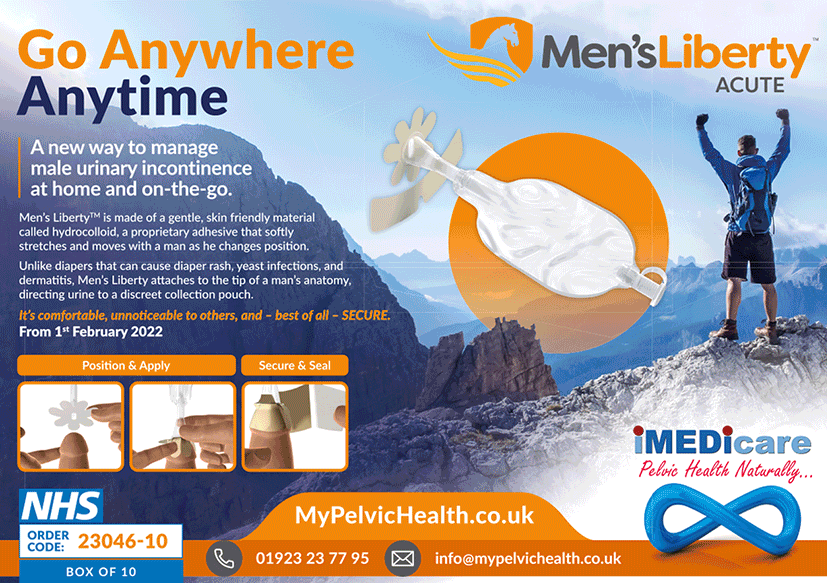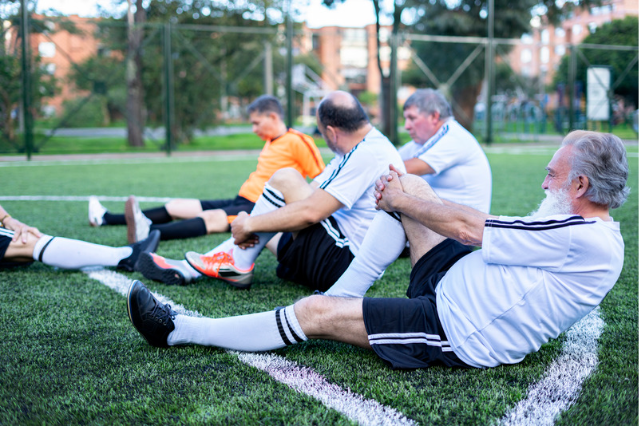What is stress incontinence?
Stress urinary incontinence is when you leak from your bladder when coughing, sneezing, laughing, running or jumping, for example. Usually only a small amount of urine is passed. It occurs when the pelvic floor muscles around your bladder and anus (back passage) become weak or stretched.
What causes stress incontinence?
Stress urinary incontinence can happen at any age. It is caused by a weak sphincter (a muscle at the bladder outlet), or by poor support to the bladder outlet from the pelvic floor muscles and ligaments.
This usually happens because the muscles of the pelvic floor are weak or damaged. Pelvic floor muscles may become weakened by pregnancy, childbirth, and delivery, straining to empty the bowel, repeated heavy lifting, menopausal changes, long term coughing, constipation and being overweight, lack of general fitness and high impact sports.
What are the pelvic floor muscles?
The pelvic floor is made up of layers of muscles, stretching like a hammock from your pubic bone to the bottom of your backbone. These muscles help to hold your bladder and bowel in position, as well as the uterus (womb) in women. They prevent leakage from your bladder and bowel, only relaxing when your bladder or bowel is emptying.
What can I do myself to help with stress urinary incontinence?
You can help yourself by making some lifestyle changes in order to reduce pressure on your bladder and pelvic floor muscles.
- Exercise regularly, including pelvic floor muscle exercises. Avoid exercises that increase the pressure on your abdomen such as high impact aerobics, jogging/running.
- Avoid smoking, which can aggravate bladder weakness through coughing.
- Avoid gaining excess weight. If you are overweight, a weight loss diet might help your incontinence.
- Drinking plenty of fluid each day, typically 1.5-2 litres (6 – 8 large cups or glasses, unless otherwise medically directed ). Drinks containing alcohol or caffeine, for example tea, coffee, or sugary fizzy and energy drinks may irritate your bladder and should be avoided. You can have drinks that do not contain caffeine, such as decaffeinated tea or coffee.
- Limit the amount of caffeine and alcohol you drink to prevent bladder irritation and avoid increased urine production.
- Trying not to become constipated by eating a healthy diet with plenty of fruit and vegetables
- Doing pelvic floor exercises. These can improve your muscle tone (strength), your continence and quality of life. Your health care professional will explain these exercises.
- Seeking medical advice if you have a long-term cough
All of these can also be discussed when you attend your consultation with the doctor, physiotherapist or nurse specialist. They will be able to advise and support you make these changes.
When should I seek further treatment for stress incontinence?
Although you may feel embarrassed talking to someone about your symptoms, we would encourage you to have a chat with your GP if you have any type of urinary incontinence. They are used to having these conversations and you should be encouraged to know that this can be the first step towards finding a way to effectively manage the problem.
Many people wrongly think that incontinence is a normal part of ageing, or that it cannot be treated. We would recommend seeking further advice who can assess and guide on treatment and management.
Will I need any tests?
These are some initial tests that you may have as part of your assessment:
- Urinalysis: This test usesa sample of urine to find out if there is any infection or any blood in the urine.
- Bladder diary: You will be given a chart (bladder diary) so that you can keep a record of the amount of fluid you drink and the amount of urine you pass, for a 3 day period. You can also record other information on the chart such as incontinence. ( link to our diary )
- Bladder scan: This is to find out if there is any urine left in your bladder after you have passed urine. The nurse will check the residual urine using an ultrasound machine to scan the bladder.
- Physical examination: Your health care professional may need to undertake a physical examination to make a further assessment, for example a pelvic/vaginal, rectal or prostate examination.
Some further tests may be required if the cause of your urinary incontinence is not clear. Your health care professional will usually start treating you first and may suggest these tests if treatment is not effective.
Pelvic floor exercises
These are exercises that improve and strengthen the pelvic floor muscles. It is important that you are shown how to do these correctly and you will be referred to the physiotherapist or specialist nurse for this treatment. They will assess your pelvic floor muscle strength and then advise an individual programme of exercises for you to follow.
Are there any other treatments?
If pelvic floor exercises and conservative options do not help, your health care professional will discuss further treatments, for example, you may benefit from a referral to a Bladder and Bowel specialist nurse, physiotherapist or a doctor who specialises in urinary incontinence.
Further treatments can include medication (tablets), nerve stimulation, physiotherapy or surgery.
Download this information as a leaflet (PDF)
This article is part of the Education Spotlight on Urinary Incontinence, supported by iMedicare. You can also read more about constipation in our information library here.




Comments are closed